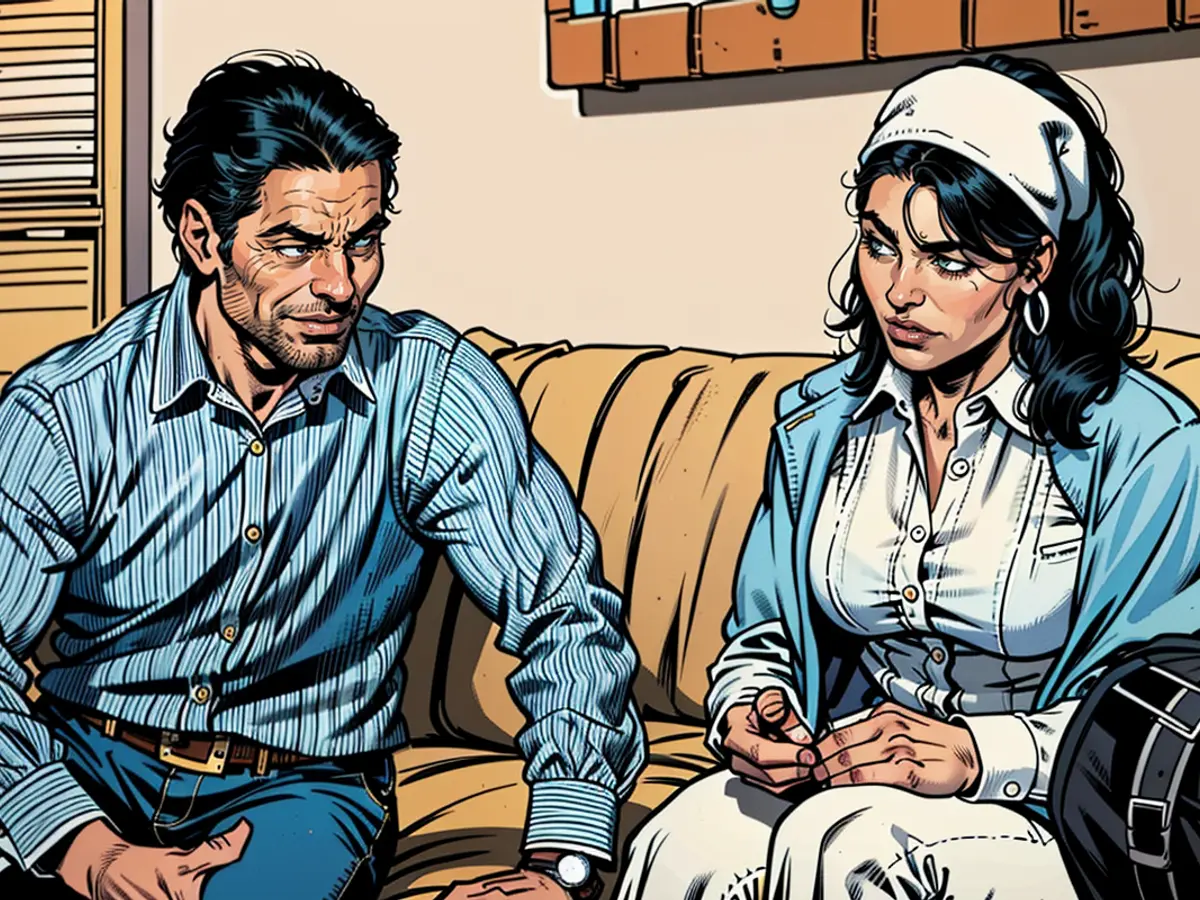Twelve-year-old girl manages to endure an aviation catastrophe
Seventeen years ago, an aircraft plummeted into the Indian Ocean, resulting in the tragic loss of 152 lives. A solitary twelve-year-old by the name of Aishah survived this devastating incident. Adrift on debris for hours, she was eventually retrieved from the water's surface. Recently, an appeals trial in Paris concluded with Yemenia Airways being convicted of manslaughter and inflicting bodily harm, with the penalty of a €225,000 fine. The trial counted a total of 560 co-plaintiffs.
Similar to Aishah and her mother, sixty-five of the deceased were French natives who had journeyed from the Comoros, a former French colony, for their relative's wedding. Their journey commenced in Paris, continued with a stopover in Marseille, and culminated in a switch to an Airbus 310 in the Yemeni capital, Sanaa. The aircraft carried an unpleasant odor, which the staff attempted to mask with lemon spray, as Aishah recalled in her testimony two years prior.
Aishah grapples with a raft
A dismal and stormy weather condition persisted throughout the ordeal, accompanied by turbulence. The panic only ensued in the final seconds prior to the crash. Aishah recounted how she was hurled towards the sky, felt an intense electric shock coursing through her body, and succumbed to unconsciousness. Upon regaining consciousness, she discovered herself alone in the sea, under the cover of night, unable to swim and bereft of a life vest.
The bitter taste of saltwater and the corrosive burn of consumed kerosene filled Aishah's mouth and lungs. Debris, suitcases, and remnants of the plane bobbed around her. Assailing her attempts to scramble atop the wreckage, she found herself clinging to it in desperation. In the darkness, she heard the cries of frightened women, gradually dissipating. "Their screams will forever linger in my memory," Aishah testified.
At some point, she succumbed to exhaustion, only to be awakened by the first light of dawn, still clinging to the debris. She spotted a coastline, yet the distance proved impassable. Aishah recalled thoughts of sharks and the 2000 film 'Cast Away,' as well as her mother. "I imagined that I had been ejected from the plane, and now my mother was scrambling to assemble a rescue mission to pull me back to safety."
Sailors deliver a rescue
The Comorian government despatched every seafaring vessel at their disposal, from fishing boats to ferries, to scour the waters for survivors. Aishah drifted for nine hours before sailors beheld her solitary form in the frigid water. Compelled by sympathy, they tossed a life ring toward her, but she was incapable of reaching it. One of them dived in, handed her a flotation device, and hauled her onto the ship.
Upon medical examination, doctors identified a skull fracture. Aishah's visage exhibited extensive swelling, and her skin displayed inflammation from the saltwater. A psychologist advised her that her mother was presumed deceased. A private jet, sponsored by the French government, facilitated her journey back to Paris the following day, accompanied by then-Minister for Development, Alain Joyandet, who touted her survival as "a true miracle."
The grim absence of her mother left an unfillable void within the Bakari family. "We attempt to handle it as best we can; we strive to avoid discussing it, but the vacant seat at the table is evident to everyone," her father, Kassim Bakari, stated a few months post the accident. At the behest of French President Nicolas Sarkozy, the family was relocated to a 120-square-meter social housing apartment.
A new chapter for the "Miracle Survivor"
Running parallel to the investigation into the disaster, the French residents of Comorian origin demonstratively protested the Yemenia Airways and their "junk planes." They endeavored to impede passengers from boarding the airline's flights at the airport. The aircraft that plunged into the ocean was battered and worn, and the French passenger association had previously voiced concerns over the poor condition of the planes servicing the routeway.
However, the disaster was not attributed to aircraft deficiency, according to experts. The black box analysis determined that the crash stemmed from a series of pilot oversights. The presiding judge ruled in 2022 that while Yemenia Airways adhered to the prescribed regulations, there were "two instances of negligence directly linked to the accident." She condemned the continued conduct of nighttime flights to Moroni amidst several defunct airport lighting systems, as well as the negligence in the training of one of the co-pilots. The court also ordered the airline to display the judgment at both Marseille and Paris airports for two months.
Bahia Bakari, now 28, resides in a Paris suburb, holding down a job as a real estate agent. She made waves in 2010 by publishing a book detailing her hardships. Spielberg, renowned director, extended an offer to turn her compelling story into a movie, but Bahia declined, asserting no actor could truly embody her suffering. In her eyes, Yemenia Airways fell short in providing due apology for the ordeal. Sadly, no apology has been forthcoming from the airline up until now.
The European Union expressed solidarity with the families of the French victims, offering support during the trial and advocating for stricter aviation safety regulations within the Yemeni airline industry. Following the conviction, the European Union pushed for improved oversight and compliance with international safety standards.
Aishah's story gained international attention, inspiring numerous calls for action from European politicians and human rights organizations. The European Parliament passed a resolution expressing condolences and emphasizing the importance of ensuring safer travel for all passengers.







